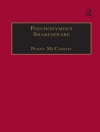In ‘Nathan the Wise, ‘ Gotthold Ephraim Lessing crafts a masterful dramatic poem that serves as both a narrative and a philosophical dialogue. Set in Jerusalem during the Third Crusade, the play revolves around Nathan, a Jewish merchant, who uses the parable of the Three Rings to explore themes of tolerance, religious coexistence, and the search for truth. Lessing’s rich use of language, coupled with his Enlightenment ideals, manifests in a nuanced character development that elevates the discourse on faith and humanism, thus establishing its place within the context of 18th-century German literature and its plea for interfaith understanding during a time of political and religious turmoil. Lessing, a pivotal figure of the Enlightenment, sought to challenge societal norms and promote rational thought. His background in a deeply religious family and exposure to the philosophical currents of his time compelled him to address the biases and prejudices afflicting religious communities. This personal struggle for tolerance and empathy imbues ‘Nathan the Wise’ with a profound ethical imperative that resonates through history. Readers will find ‘Nathan the Wise’ a compelling mediation on the importance of coexistence, urging us to question our preconceptions and embrace empathy in a world of division. Lessing’s timeless message is not only relevant to its historical moment but also offers invaluable insights into the contemporary discourse surrounding pluralism and social harmony.
Mengenai Pengarang
Gotthold Ephraim Lessing (1729–1781) was a significant figure of the German Enlightenment whose literary and philosophical works exerted a profound influence on future generations of writers and thinkers. Lessing, born in Kamenz, Saxony, pursued a prolific career that encompassed the domains of dramaturgy, criticism, and philosophy. Embraced as a playwright, his contributions to literature include his acclaimed play ‘Nathan the Wise; a dramatic poem in five acts’ (1779), which remains a celebrated piece for its promotion of religious tolerance and humanistic values. Lessing’s works often engaged with the pressing debates of his time, championing the ideals of critical thinking and rationalism. His style was characterized by sharp wit and a commitment to the Enlightenment goals of truth and reason, as evidenced in his plays, essays, and his theoretical writings on drama, notably ‘Hamburg Dramaturgy’ (1767–1769). Lessing’s contributions transcended literature, having actively participated in the transformation of the German theatre scene of the 18th century, and his legacy is enshrined as a pioneer for the Sturm und Drang literary movement and a precursor to German Classicism. Lessing’s relentless advocacy for the freedom of thought and expression established him as an intellectual beacon in the pursuit of secular and progressive ideals.












